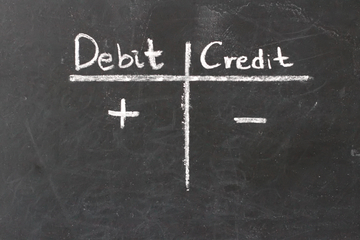When it comes to choosing a financial institution for your checking, savings, and financial needs, you have two primary options: a credit union vs a bank. Although banks and credit unions offer similar services and products, they are actually two different types of financial institutions. Let's take a closer look at the similarities and differences between banks and credit unions.
What Is a Credit Union?
A credit union is a not-for-profit financial institution or cooperative that is owned by the people who utilize its financial services. The cooperative, not-for-profit structure of credit unions means they exist to help members with a shared bond achieve greater financial well-being. This doesn't mean credit unions are unprofitable. Instead, the profits generated by the credit union are used to further serve the member-owners in the form of more attractive rates and dividends.
What Is a Bank?
A bank is a for-profit financial institution licensed to accept savings and checking deposits. In addition to an array of lending products, banks can offer other financial services, such as:
Different Types of Banks
While retail banks that offer general banking services are the most prevalent, there are several other types of banks:
Differences Between Credit Unions and Banks
The primary difference between banks and credit unions is the ownership structure:
Bank vs Credit Union's Primary Focus
Banks are guided by maximizing shareholder value. This doesn't mean banks overlook the needs of their customers. Instead, customer needs are aligned with products that increase shareholder value. In contrast, credit unions are focused on delivering a best-in-class member experience.
Credit Unions Typically Have Higher Deposit Rates Compared to Banks
When for-profit banks are profitable, their shareholders benefit in the form of year-end dividends and increased stock value. When not-for-profit credit unions are profitable, the profits are passed onto the member-owners in the form of dividends and:
Banks Typically Have More Advanced Technology & Are More Accessible
In today's age of technology and mobile banking, banks have a clear edge over credit unions. While most banks offer innovations like mobile check deposit, peer-to-peer payment solutions, and biometric technology, fewer credit unions have the infrastructure to adopt these solutions. Banks are also larger, offer more branches, and have a larger ATM network, which makes these institutions more accessible.
Bank vs Credit Union's Qualifications to Join or Enroll
For the most part, anyone can join a bank as long as basic financial and citizenship criteria are met. However, to join a credit union, you must share a common bond and be within the institution's Field of Membership (FOM) based on the Federal Credit Union Act of 1934. Examples of FOM requirements include:
Credit Union Members vs Bank Customers
Banks have customers. Credit unions have members who double as owners.
How Are They Similar?
Although credit unions and banks have several differences, they share similarities.
Banks and Credit Unions Offer Similar Products
Banks and credit unions offer a very similar lineup of products and services, such as:
Credit Unions and Banks Offer Deposit Safety
Both banks and credit unions offer depositors a level of safety in the form of insurance on the money deposited.
FAQs About Banks vs Credit Unions
Is a Credit Union Safer Than a Bank?
Both credit unions and banks are federally insured, so they’re considered equally safe. However, deposits at credit unions are insured by the NCUSIF, while deposits at banks are insured by the FDIC.
Are There Downsides to Using a Credit Union?
One perceived downside of credit unions is they tend to have fewer branches than traditional banks. To overcome this problem, simply find a credit union that is part of a shared branch network to avoid this issue.
Sources
- 2021 FDIC National Survey of Unbanked and Underbanked Households
- How is a credit union different than a bank? │MyCreditUnion.gov
- Find, Join or Start a Credit Union │MyCreditUnion.gov
- What's a Credit Union? │Elements Financial
- What Are Common Types of Banks │Credit Karma
- How Banking Works, Types of Banks, and How To Choose the Best Bank For You
- What is a credit union?
- Credit Unions: Nonprofit or Not-for-Profit, What's the Difference?
- In the Know: Credit Union Statistics - Extensia Financial
- Credit Union Field of Membership │CUCollaborate
- FDIC: Deposit Insurance
- Are Credit Unions FDIC Insured by the Government?
- Credit unions, shares, and dividends: The root of the industry's distinctive terminology - CUInsight
- COMPS-264.pdf
- Frequently Asked Questions on Member Capital and Dividend Payouts │NCUA
- Choose a Field of Membership │NCUA
- Historical Timeline │NCUA
- Historical documents │USAGov



